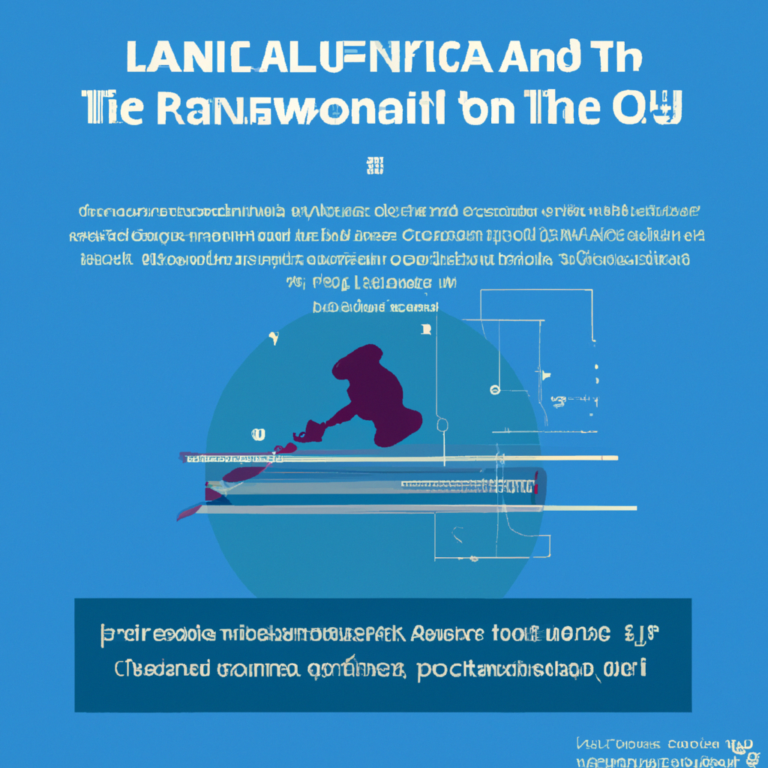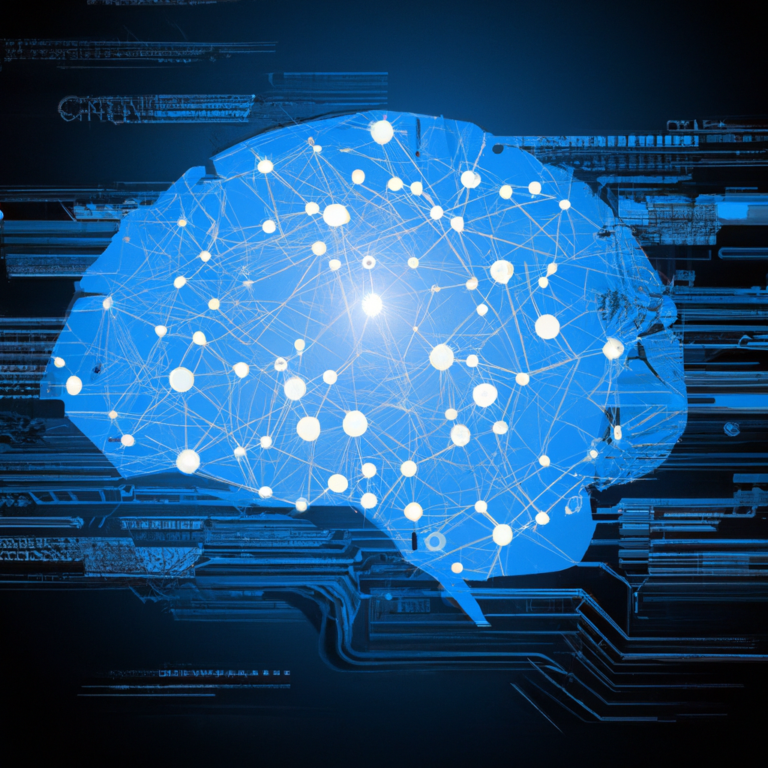The Best AI Courses And Resources

If you’re looking to expand your knowledge and skills in the exciting field of artificial intelligence, you’ve come to the right place. In this article, we’ll be sharing a curated list of the best AI courses and resources currently available. Whether you’re a beginner looking to get started or an experienced professional aiming to stay ahead of the curve, these resources are designed to provide you with the tools and knowledge you need to thrive in the world of AI. So grab a cup of coffee, sit back, and get ready to embark on an exciting learning journey with the best AI courses and resources available to you.

Online Courses
Machine Learning
If you’re interested in gaining knowledge about the field of artificial intelligence (AI), specifically machine learning, there are a plethora of online courses available to you. Machine learning is an essential aspect of AI, as it involves algorithms that can learn from and make predictions or decisions based on data. Some popular online courses for machine learning include Andrew Ng’s “Machine Learning” course on Coursera and the “Applied AI with DeepLearning” course on deeplearning.ai.
Deep Learning
Deep learning is a subset of machine learning that focuses on artificial neural networks and their ability to learn and make decisions without explicit programming. It is currently a cutting-edge field of AI and has immense potential. To delve into deep learning, you can enroll in online courses like the “Deep Learning Specialization” on Coursera, taught by Andrew Ng, or the “Advanced Deep Learning” course on edX, offered by DeepLearning.AI.
Natural Language Processing
Natural Language Processing (NLP) is the branch of AI concerned with the interaction between computers and human language. It encompasses tasks such as text analysis, speech recognition, and language translation. For those interested in NLP, online courses like the “Natural Language Processing” course on Coursera, taught by Columbia University, or the “Deep Natural Language Processing” course on the University of Oxford’s website, can be excellent resources.
Computer Vision
Another fascinating field within AI is computer vision, which focuses on enabling computers to understand and interpret visual data from images or videos. If computer vision intrigues you, renowned online courses like the “Convolutional Neural Networks for Visual Recognition” course offered by Stanford University on Coursera or the “Introduction to Computer Vision” course on Udacity are worth considering.
Reinforcement Learning
Reinforcement learning involves training an AI agent to make decisions by rewarding desired behaviors and penalizing undesired actions. It has applications in various domains, including robotics and game playing. To learn more about reinforcement learning, you can enroll in online courses like the “Practical Deep Reinforcement Learning Approach in Python” on Udemy or the “Reinforcement Learning Specialization” on Coursera, offered by the University of Alberta.
University Programs
Undergraduate Programs
For a more immersive and comprehensive learning experience in AI, pursuing an undergraduate degree in the field can be a wise choice. Many universities now offer dedicated undergraduate programs in artificial intelligence. Some prominent options include the Bachelor of Science in Artificial Intelligence program at Stanford University and the Bachelor of Computer Science in Artificial Intelligence program at the University of Edinburgh.
Master’s Programs
If you already have a bachelor’s degree and want to specialize further in AI, consider pursuing a master’s program in the field. These programs offer advanced coursework and research opportunities in AI subfields such as machine learning, computer vision, and natural language processing. Renowned universities like Carnegie Mellon University and the University of California, Berkeley, offer esteemed master’s programs in AI.
Ph.D. Programs
For individuals passionate about conducting cutting-edge research and advancing the field of AI, pursuing a Ph.D. in Artificial Intelligence can be immensely rewarding. These programs typically involve in-depth research, collaboration with experts, and the opportunity to make significant contributions to the field. Some prestigious institutions offering Ph.D. programs in AI include Stanford University and the Massachusetts Institute of Technology (MIT).
Books
Fundamentals of Artificial Intelligence
If you prefer learning through books, there are several excellent resources available to build a strong foundation in AI. “Artificial Intelligence: A Modern Approach” by Stuart Russell and Peter Norvig is a highly recommended textbook that covers the fundamentals of AI, including topics like search algorithms, knowledge representation, and machine learning.
Machine Learning for Beginners
For beginners looking to understand machine learning concepts and techniques, “Hands-On Machine Learning with Scikit-Learn, Keras, and TensorFlow” by Aurélien Géron is a fantastic resource. This book provides a practical approach to machine learning, with hands-on examples and guidance on implementing algorithms using popular libraries.
Deep Learning in Practice
To dive into the world of deep learning, “Deep Learning with Python” by François Chollet is a must-read. This book covers the basics of deep learning, neural networks, and convolutional neural networks, along with practical examples and code implementations using the TensorFlow framework.
Advanced Topics in AI
For those with a deeper understanding of AI and an interest in exploring more advanced topics, “Artificial Intelligence: Foundations of Computational Agents” by David L. Poole and Alan K. Mackworth is an excellent choice. This book covers complex subjects like planning, probabilistic reasoning, and game theory, providing a comprehensive overview of AI’s advanced concepts.

Online Resources
AI Blogs
Keeping up with the latest advancements and trends in AI can be daunting, but there are numerous AI blogs that serve as valuable resources. Blogs like Towards Data Science, AI Trends, and OpenAI Blogs provide regular updates, insightful articles, and expert opinions, helping you stay informed about the latest breakthroughs and developments in the field.
AI Podcasts
If you enjoy auditory learning, AI podcasts can be a great way to expand your knowledge. Podcasts like “Lex Fridman Podcast,” “AI in Business,” and “The TWIML AI Podcast” feature interviews with industry experts, discussions on AI applications, and insights into research and innovation happening in the field.
AI News Websites
To stay up to date with AI news, platforms like AI News, Synced, and VentureBeat’s AI section offer a wide range of articles covering AI-related topics, including advancements, ethical considerations, and the impact of AI on various industries.
AI Online Forums
Engaging with a community of like-minded individuals can enhance your learning experience and provide valuable insights. Online forums like Reddit’s r/MachineLearning and Quora’s Artificial Intelligence forum provide platforms for discussions, sharing resources, and seeking guidance from experts and enthusiasts.
AI Certification Programs
Professional AI Certification
Obtaining a professional AI certification can validate your skills and expertise in the field. Organizations like IBM, Microsoft, and Google offer professional AI certifications, such as the IBM Watson AI Foundations Professional Certificate and the Google TensorFlow Developer Certificate, which can enhance your credibility and career prospects.
Specialized AI Certifications
For professionals looking to specialize in specific AI subfields, specialized certifications can showcase your proficiency and knowledge. Platforms like Coursera and edX offer specialized AI certifications in areas such as deep learning, natural language processing, and computer vision, with programs like the Deep Learning Specialization or the Natural Language Processing Specialization.
Industry-Specific AI Certifications
Many industries now recognize the value of AI and offer industry-specific certifications to demonstrate proficiency in applying AI techniques to their unique challenges. For example, the Healthcare AI Certification offered by the American College of Radiology and the AI in Finance Professional Certificate by CFTE cater to professionals seeking to implement AI in healthcare and finance, respectively.
AI Research Papers
Top AI Research Papers
Reading research papers is an excellent way to stay up to date with the latest breakthroughs and advancements in AI. Papers like “Attention Is All You Need” by Vaswani et al., “Generative Adversarial Networks” by Goodfellow et al., and “BERT: Pre-training of Deep Bidirectional Transformers for Language Understanding” by Devlin et al. are some of the top AI research papers worth exploring.
AI Conference Proceedings
AI conferences, such as NeurIPS, ICML, and CVPR, publish their proceedings, which compile research papers presented at these influential events. These proceedings provide a wealth of knowledge, covering a wide range of AI topics and showcasing the latest research in the field.
AI Journals
Journals like “Nature,” “Science,” and “Journal of Artificial Intelligence Research” publish high-impact AI research papers. These journals bring together cutting-edge studies and advancements, offering a platform for researchers to share their findings and contribute to the AI community’s collective knowledge.
AI Tools and Libraries
Machine Learning Libraries
Machine learning libraries like scikit-learn and TensorFlow provide essential tools and functionalities for building and training machine learning models. These libraries offer a range of algorithms, data preprocessing techniques, and evaluation metrics, making it easier to develop robust AI solutions.
Deep Learning Frameworks
Deep learning frameworks such as Keras, PyTorch, and TensorFlow are powerful tools for building and training deep neural networks. These frameworks provide a higher level of abstraction, making it easier to implement complex deep learning architectures and experiment with innovative techniques.
NLP Toolkits
NLP toolkits like NLTK (Natural Language Toolkit) and Spacy simplify the processing and analysis of textual data. They offer functionalities for tasks such as tokenization, part-of-speech tagging, named entity recognition, and sentiment analysis, enabling researchers and developers to work more efficiently in NLP projects.
Computer Vision Packages
Computer vision packages like OpenCV and scikit-image provide a wide range of tools and algorithms for working with images and video data. These packages offer functionalities for tasks such as image preprocessing, feature extraction, and object detection, empowering developers to create robust computer vision applications.
Reinforcement Learning Platforms
Reinforcement learning platforms like OpenAI Gym and RoboSchool provide environments and tools for developing and evaluating reinforcement learning agents. These platforms offer a standardized way to implement and test reinforcement learning algorithms, making it easier to explore and advance in this exciting field.
AI Communities and Forums
Online AI Communities
Online communities dedicated to AI, such as Kaggle and GitHub, serve as hubs for collaboration, knowledge sharing, and networking among AI enthusiasts and professionals. These communities provide platforms to participate in AI competitions, contribute to open-source projects, and interact with experts in the field.
AI Forums
Forums like AI Stack Exchange and AI Forum foster discussions and knowledge exchange on a wide range of AI-related topics. These forums provide opportunities to ask questions, seek advice, and engage in discussions with individuals from various backgrounds, including researchers, practitioners, and hobbyists.
Social Media Groups
Social media platforms like LinkedIn, Facebook, and Twitter host numerous AI-focused groups and communities. Joining these groups can enable you to connect with professionals, share insights, and stay updated on the latest trends and discussions in the AI community.
AI Conferences and Events
Global AI Conferences
Global AI conferences, such as the Conference on Neural Information Processing Systems (NeurIPS) and the International Conference on Machine Learning (ICML), bring together researchers, industry professionals, and academics from around the world. These conferences offer a platform for presenting research, attending workshops, and networking with experts and peers.
Regional AI Conferences
Regional AI conferences cater to specific geographical areas and provide platforms for researchers and enthusiasts to share their work and insights in a localized context. Conferences like Europe’s International Joint Conference on Artificial Intelligence (IJCAI-ECAI) and Asia’s International Conference on Artificial Intelligence and Statistics (AISTATS) offer valuable opportunities for networking and gaining regional perspectives on AI.
AI Symposiums and Workshops
AI symposiums and workshops are focused events that delve into specific AI subfields or emerging trends. These events often feature expert talks, panel discussions, and hands-on workshops, allowing participants to gain in-depth knowledge and collaborate closely with industry leaders and researchers.
AI Applications and Use Cases
Healthcare
AI has revolutionized healthcare, enabling advancements in medical imaging analysis, disease diagnosis, and drug discovery. AI-powered technologies like computer-aided diagnosis systems, personalized medicine, and telemedicine have the potential to transform healthcare delivery and improve patient outcomes.
Finance
The financial industry heavily relies on AI for tasks such as fraud detection, algorithmic trading, and risk assessment. AI models can analyze vast amounts of financial data in real-time, identify patterns, and make accurate predictions, facilitating better decision-making and increasing operational efficiency.
Retail
AI applications in the retail sector include personalized recommendations, demand forecasting, and inventory management. By harnessing AI algorithms, retailers can optimize product offerings, deliver targeted marketing campaigns, and enhance customer experiences through chatbots and virtual assistants.
Transportation
AI plays a crucial role in enhancing transportation systems, with applications ranging from autonomous vehicles to intelligent traffic management. Self-driving cars, intelligent routing systems, and predictive maintenance solutions leverage AI techniques to improve traffic efficiency, reduce accidents, and enhance overall transportation safety.
Manufacturing
In manufacturing, AI enables automation, predictive maintenance, and quality control. By integrating machine learning algorithms and IoT devices, manufacturers can optimize production processes, identify potential equipment failures, and enhance product quality, leading to increased efficiency and reduced costs.
Education
AI is transforming the education sector through adaptive learning platforms, intelligent tutoring systems, and automated grading. Personalized learning experiences, real-time feedback, and data-driven insights empower both students and educators, fostering more effective teaching and learning environments.
In conclusion, the field of AI offers a vast range of online courses, university programs, books, online resources, certifications, research papers, tools and libraries, communities, conferences, and real-world applications. By exploring these resources and immersing yourself in the fascinating world of AI, you can acquire the knowledge and skills needed to contribute to this rapidly evolving field and reap its numerous benefits across various industries.






